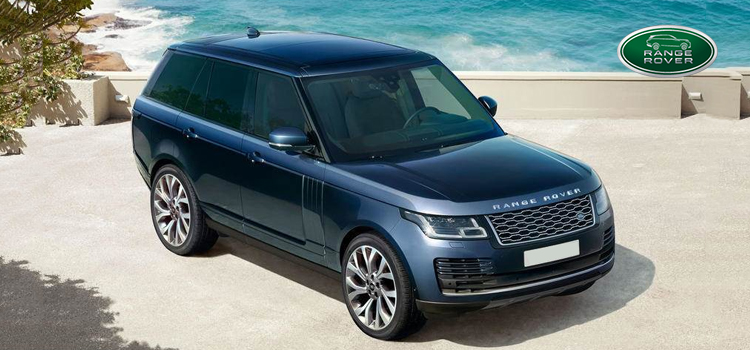
The Range Rover Sport 3.0-Litre Engines are known for versatility. Available in petrol and diesel variants, these engines cater to different driving needs. This blog compares these two versions to help you make an informed decision.
1. Overview of Range Rover Sport 3.0-Litre Engines
Performance Tailored for Every Driver
The Range Rover Sport 3.0-Litre Engines combine power and efficiency. Both versions offer distinct features to suit specific preferences.
Why Choose 3.0-Litre Engines?
These engines balance robust performance with fuel economy. Drivers experience luxury and capability in every ride.
2. Key Features of Petrol and Diesel Engines
Range Rover Sport 3.0-Litre Petrol Engine
The petrol engine delivers smooth power and quick acceleration. It is ideal for city drives and long highways.
Range Rover Sport 3.0-Litre Diesel Engine
The diesel engine offers high torque and impressive towing capacity. It performs excellently on rugged terrains and long journeys.
Fuel Type and Its Influence
The choice between petrol and diesel affects driving dynamics. Consider your needs to choose the right engine.
3. Performance Comparison
Power Output and Acceleration
The petrol engine provides faster acceleration. It is perfect for those who prioritize speed and smoothness.
The diesel engine offers more torque. It excels in heavy-duty performance and off-road capabilities.
Driving Range and Efficiency
Diesel engines typically deliver better mileage. They are suitable for long-distance travel with fewer refuels.
Petrol engines may require more frequent stops. However, they are better suited for short urban commutes.
Noise Levels and Smoothness
Petrol engines are quieter and refined. They ensure a luxurious and noise-free ride.
Diesel engines may produce more noise. However, advancements have significantly reduced this in newer models.
4. Fuel Economy: Petrol vs. Diesel
Mileage of Range Rover Sport 3.0-Litre Petrol Engine
Petrol engines offer moderate mileage. They are suitable for drivers who prioritize smooth city driving.
Mileage of Range Rover Sport 3.0-Litre Diesel Engine
Diesel engines provide excellent fuel efficiency. They are ideal for long journeys and cost-conscious drivers.
Cost of Refueling
Diesel fuel is often cheaper than petrol. This makes diesel engines more economical over long-term usage.
5. Environmental Impact
Emissions from Petrol Engines
Petrol engines produce fewer nitrogen oxides. They are considered more environmentally friendly in urban settings.
Emissions from Diesel Engines
Diesel engines emit more nitrogen oxides but less carbon dioxide. Modern diesel engines now include systems to reduce harmful emissions.
Which is Greener?
Both engines have pros and cons. Choose one based on driving habits and regional emission regulations.
6. Maintenance Costs and Durability
Petrol Engine Maintenance
Petrol engines usually require less maintenance. Replacement parts for petrol engines are often cheaper.
Diesel Engine Maintenance
Diesel engines are more durable but require regular servicing. The turbocharger and fuel injection systems need extra care.
Longevity of Each Engine
Diesel engines often outlast petrol engines. Proper maintenance ensures a long life for both engine types.
7. Practical Uses of Range Rover Sport 3.0-Litre Engines
Best Use Cases for Petrol Engines
Petrol engines are great for urban commutes. They are also perfect for those who value a quieter, smoother ride.
Best Use Cases for Diesel Engines
Diesel engines excel in off-road adventures. They are suitable for towing heavy loads and long-distance travel.
Adaptability to Weather Conditions
Diesel engines perform well in colder climates. Petrol engines start smoothly in all weather conditions.
8. Pros and Cons: Petrol vs. Diesel
Advantages of Petrol Engines
>> Quieter and smoother operation.
>> Lower initial cost.
>> Less maintenance needed.
Disadvantages of Petrol Engines
>> Higher fuel consumption.
>> Less torque for towing.
Advantages of Diesel Engines
>> Better mileage and fuel efficiency.
>> High torque for off-road performance.
>> Long-lasting durability.
Disadvantages of Diesel Engines
>> Higher initial cost.
>> More maintenance required.
9. Choosing the Right Range Rover Sport 3.0-Litre Engine
Consider Your Driving Habits
Evaluate your daily commute and travel needs. Petrol engines are great for city driving. Diesel engines suit long distances and heavy loads.
Think About Long-Term Costs
Diesel engines save money on fuel but cost more upfront. Petrol engines have lower initial costs but higher fuel expenses.
Factor in Environmental Concerns
Choose an engine that aligns with your environmental priorities. Modern diesel engines are now more eco-friendly than ever.
10. Why Trust Range Rover Engine Specialists
High-Quality Reconditioned Engines
Range Rover Engine Specialists offer premium reconditioned engines. They ensure top-notch quality and reliable performance.
Expert Guidance for Engine Selection
Their experts help you choose the perfect engine. Whether petrol or diesel, they offer the best advice.
Affordable Solutions for Every Driver
They provide cost-effective reconditioned engines. Customers enjoy value without compromising quality.
Conclusion
The Range Rover Sport 3.0 Engines, petrol and diesel, cater to different needs. Petrol engines excel in smoothness and city driving. Diesel engines shine in mileage and off-road capabilities.
When upgrading or replacing your engine, trust Range Rover Engine Specialists. Their reconditioned engines deliver quality and reliability. With their expertise, you’ll find the perfect engine for your needs.


